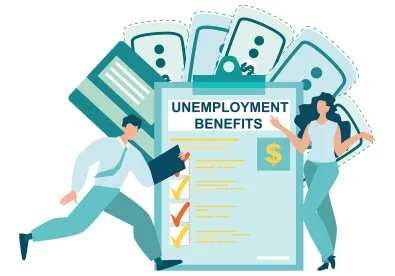The persistent problem of undocumented workers presenting plausible (but ultimately fraudulent) employment verification documents to employers has taken a new twist in the COVID-19 pandemic: a rise in imposter claims for unemployment insurance.
Imposter claims are a type of identity theft; someone uses someone else’s personal information, including Social Security numbers, to collect unemployment compensation. COVID-19 payments are higher than regular unemployment payments and presents more of an incentive for imposter fraud – and states are experiencing more of it. Rhode Island has reported 2,000 such claims. Oklahoma has seen a steep rise. And these are likely just the tip of the iceberg.
Imposter fraud can be discovered in several ways. Individuals who need to apply for unemployment find out that they cannot do so because someone else is already collecting under their Social Security number. Individuals might also be denied unemployment benefits because the state agency’s system sees that someone else is still working and being paid under that same Social Security number. Alternatively, employers may receive notices of claims for employees who have not been laid off. It is even possible that applicants denied unemployment could contact the employer of the imposter and thereby inform the employer of the fraud.
What should employers do if they become aware that an employee is a victim of imposter fraud?
-
If someone is fraudulently collecting under your company’s account, the employer should report that to the local Department of Labor to try to avoid the increased cost of insurance.
-
A police report can be filed alleging identity theft by the employer or the affected employee. Indeed, the U.S. Supreme Court recently held that state identify theft laws were not pre-empted by the Immigration Reform and Control Act of 1986 (IRCA).
-
The employee can also be encouraged to file a report with the IRS, the Federal Trade Commission (FTC), and a credit reporting bureau.
-
But what if you receive information claiming that one of your employees is the “imposter”?
Employers are increasingly receiving phone calls and letters from individuals claiming that an employee is working with fraudulent documentation. Even so, employers should not take any precipitous action adversely affecting the employee’s job. The non-employee’s alarming claim may itself be false, mistaken, or part of a scam to get personal identifying information about one of your employees. Furthermore, the employee may not have intentionally provided incorrect information.
The best path before discussing the accusation with the employee is to first check the employment records.
Check the employee’s Form I-9 record. The Form I-9 may have errors on it that create a reason to ask the employee to update the documentation, which can then be checked. If the List A, B, or C documentation has been copied, legal counsel can assist you in examining the authenticity of the documentation.
Check payroll records and other company records to determine if there have been other complaints or indications that the claim has validity.
Ultimately, the decision about how to proceed will be based on all the specific facts and circumstances regarding the employee and your company’s history regarding employment verification issues. It is important to make an individualized decision and proceed cautiously to avoid violating document abuse or discrimination restrictions or creating a potential discrimination claim by the employee.




 />i
/>i

